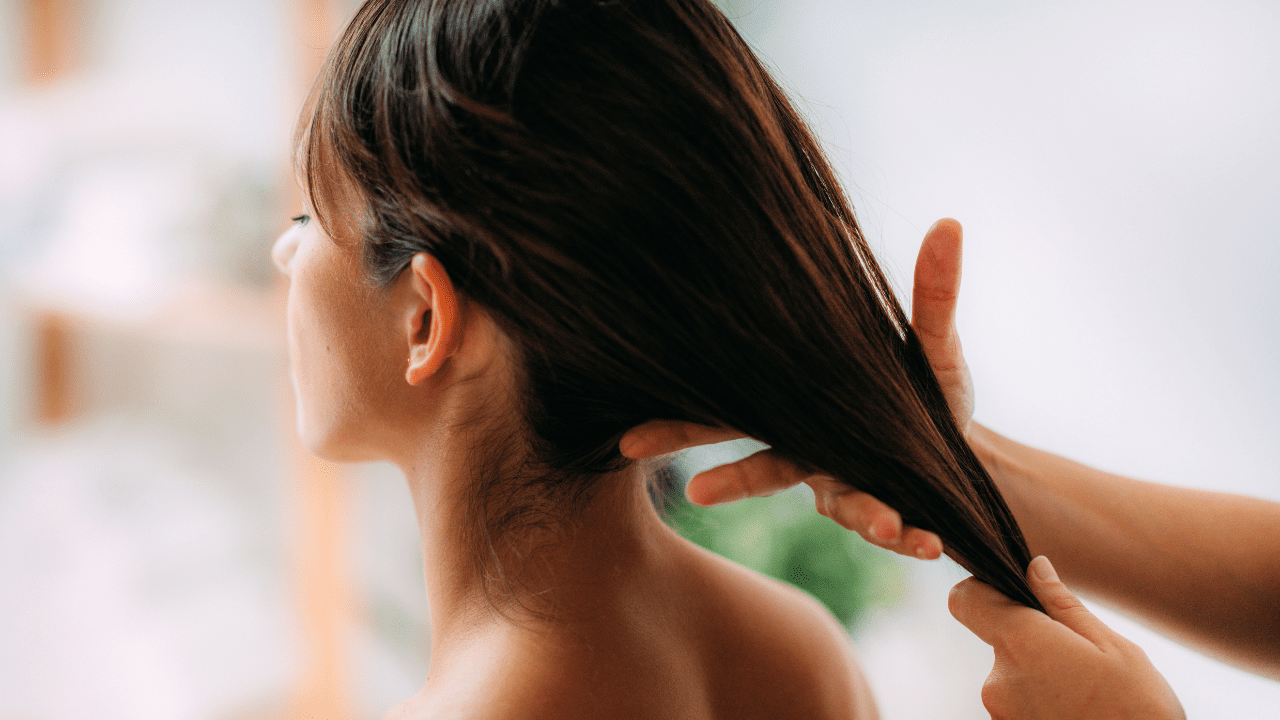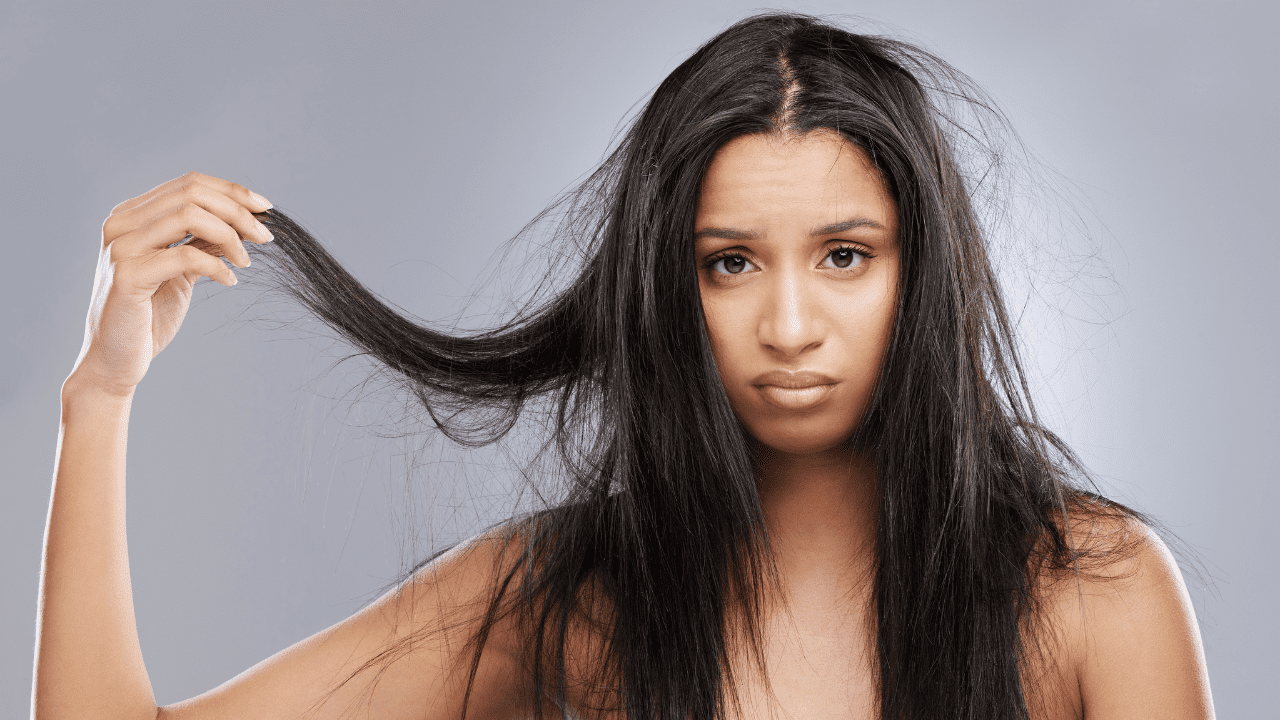Hair loss can often be an unforeseen and misunderstood symptom of thyroid disorders, such as hyperthyroidism and hypothyroidism, but it can combated with the proper vitamins for thyroid hair loss. First, though, let’s dive into where these issues come from. The thyroid gland in the body plays a critical role in regulating many functions, including metabolism and hair growth. If the thyroid gland malfunctions for any reason, it can cause issues in hair growth cycles, which can result in thinning hair or bald patches on the body. Thankfully though, there are a few strategies that have been shown to be effective thyroid hair loss treatments, including the use of vitamins, supplements, and specialized hair care products. These can even result in reversing thyroid hair loss!
Understanding Thyroid Hair Loss
The thyroid gland, located in the neck, creates hormones that regulate and control several different bodily functions, including metabolism. When the thyroid gland is underactive (hypothyroidism) or overactive (hyperthyroidism), it can lead to imbalances in hormone levels, which can greatly affect the body’s normal processes.
One common symptom of the thyroid gland dysfunctioning is hair loss. In hypothyroidism, the body’s metabolism slows down, including the processes involved in hair growth. This can result in thinning or brittle hair, and hair loss from the scalp. Conversely, hyperthyroidism can do the opposite by accelerating the metabolism, causing hair to become thin, fine, and prone to breakage.
How to Stop Hair Loss Due to Thyroid Issues
Addressing hair loss that results from thyroid malfunction involves managing the underlying issues while also targeting overall hair health. While medication and lifestyle changes are often essential aspects of thyroid treatment, incorporating specific vitamins and supplements into your diet can further support hair regrowth and stop thyroid hair loss.
Vitamins for Thyroid Hair Loss:
- Iodine: Iodine is an essential component for proper thyroid function, as it is a key ingredient of thyroid hormones. However, too much iodine in your system can exacerbate thyroid problems, so it’s essential to consult a healthcare professional before supplementing with iodine.
- B Vitamins: B vitamins, including biotin (B7) and niacin (B3), play crucial roles in promoting healthy hair growth. Biotin, in particular, is known for strengthening hair strands and preventing breakage.
- Vitamin D: Adequate vitamin D levels are important for overall health and may also support hair growth. Some studies suggest a link between vitamin D deficiency and hair loss. Adding this to your diet should be a strong consideration for people with thyroid disorders.
- Vitamin A: Vitamin A is involved in the production of sebum, which moisturizes the scalp and promotes healthy hair growth. However, too much vitamin A intake can lead to hair loss, so it’s important to maintain a proper balance and consult with healthcare professionals.
- Vitamin E: Vitamin E is a potent antioxidant that can help protect hair follicles from oxidative stress. Adding vitamin E-rich foods or supplements to your diet may support overall hair health.
- Zinc: This mineral is involved in numerous enzymatic reactions, including those related to thyroid hormone production and follicle health. Proper zinc levels are essential for maintaining a healthy scalp and may help prevent hair loss associated with thyroid gland issues.
- Magnesium: Magnesium is a crucial vitamin for energy metabolism and proper enzyme function, including those involved in thyroid hormone synthesis and activation. Ensuring you have sufficient magnesium may support overall thyroid health and contribute to the maintenance of strong, healthy hair.
Supplements for Thyroid Hair Loss:
Thyroid Support Complex: Some supplements, containing ingredients like iodine, selenium, and L-tyrosine, have been designed to support thyroid health. While these supplements may not directly address hair loss, optimizing thyroid function can indirectly benefit hair growth.
Specialized Hair Care Products
In addition to supplements, using the right hair care products can help manage thyroid-related hair loss and improve the overall condition of the hair and scalp. When choosing shampoos, conditioners, and other hair care products, look for products that cater to your specific needs with thyroid disorders.
Best Shampoo for Thyroid Hair Loss:
Thyroid Hair Regrowth Complex: Some hair care brands offer specialized complexes or systems designed to support thyroid hair regrowth. These products typically include shampoos, conditioners, and serums formulated with ingredients that promote hair growth and overall scalp health.
Lifestyle Considerations
In addition to incorporating vitamins, supplements, and specialized hair care products into your routine, there are several lifestyle factors that should be considered when managing thyroid-related hair loss:
- Maintain a Balanced Diet: A healthy diet focusing on unprocessed foods and rich in fruits, vegetables, lean proteins, and essential nutrients is essential for overall health, including hair health.
- Manage Stress: Chronic stress can increase hair loss, so incorporating stress-reducing activities into your daily routine, like meditation, yoga, or deep breathing exercises can help promote overall mental and physical health.
- Limit Heat Styling: Excessive heat styling can damage hair and contribute to breakage. Minimize the use of hot tools like blow dryers, straighteners, and curling irons.
Conclusion
Hair loss from thyroid disorders can be distressing, but it can be entirely manageable with a correct and health-centric approach. By addressing underlying thyroid issues, incorporating the best vitamins and supplements for thyroid hair loss and overall hair health, and using specialized hair care products, people from all walks of life can take the essential steps to reduce hair loss and promote regrowth. Additionally, supporting a healthy lifestyle that includes a balanced diet, stress management, and gentle hair care practices can further improve overall hair health. If you’re experiencing significant hair loss, consult with a professional trichologist for personalized guidance and treatment options.




